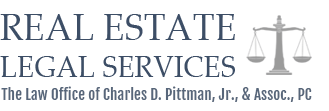How Should Such Incompetence Be Rewarded?
While the consequences of extreme error in foreclosure and repossession very drastically from state to state, the one universal given is that mortgage lenders do make mistakes in foreclosure. Our firm was privileged to represent an upside down homeowner in Virginia Beach, Virginia and to help our client get an excellent negotiated settlement on the short sale of his home. Our client was financially battered and needed every penny saved to relocate out of state for a fresh start. His resourceful real estate agent found a qualified buyer just in time to help us stave off foreclosure and we worked as expeditiously as possible to close quickly and relieve our client of some of the stress of constant threatening phone calls and foreclosure advertisements.
Closing was uneventful and our client thanked us gratefully and moved away to another state. We have no first hand knowledge of how the Buyer’s title agency handled the paperwork that we provided them as required by our client’s lender nor do was know how quickly the short sale payoff proceeds were transmitted to the Seller’s bank. We have to assume everything was done properly and according to the standards of the closing industry. Nevertheless, two weeks after closing, the realtor who worked for the Buyer, the “selling agent”, sent off frantic emails and made calls to our firm and everyone else involved in the transaction. After two peaceful and fulfilling weeks in their new property, the Buyers were locked out! A mysterious contractor – one we have nicknamed “Bull in the China Shop Locksmith” until we find out the identity of the actual culprit – came while the buyers were at work, changed locks, marred the doors badly, installed new locks and threw away deadbolts and other expensive hardware that the Buyers had invested in after closing.
We immediately made inquiry of the title agency settlement agent, which confirmed they had no difficulty transmitting short sale payoff proceeds to our Seller’s lender and expected an uneventful release of our Seller’s deed of trust. We then spent the typical long painful wait on hold while the appropriate parties at our Seller’s mortgage lender were identified to help us understand what had happened. After investing the better part of one of our valuable employee’s entire day on the phone with the Seller’s mortgage lender, the lender finally confessed that they had failed to cancel their order for “securing” or repossessing the Seller’s home even though a short sale had been agreed upon and paid in full! At this time, the lender refuses to identify the contractor who broke into the Buyer’s new home, trespassed, vandalized and changed locks preventing the Buyers from accessing their home. The Lender, with deep pockets to defend against legal process if suit is brought for the trespass and vandalism, is shielding its contractor, presumably in the interests of keeping costs down on the process of foreclosure and repossession. If these sub-contractors who winterize, secure, or rekey bank properties are held accountable for such acts, they may go out of business, stop working for banks, or will certainly pass on higher insurance rates to the banks. But give Bull in a China Shop Locksmith credit, even though he was over two weeks late, he at least found the right house.
In one small town in another state, a contractor, relying upon a GPS or his inability to read it properly, secured the neighbors house across the street from the house the bank hired the contractor to secure. Locks were changed, nearly $20,000 in property was destroyed or sold or thrown out! When the homeowners returned from vacation . . . they thought they had been completely violated by a burglar and reported it to the police who investigated the case as such. Only the bizarre and unlikely fact that the burglar had taken the time to change locks led the police to discover the error by the bank in foreclosing on and trying to repossess the wrong property. You have to read this story and listen to the homeowner in the link (which includes video) to believe the outcome of this egregious mess up. Never again will you underestimate the power of the lender lobby in getting state laws passed that protect them from all kinds of negligence.
That case involved a small town bank in Alabama and a perhaps a contractor who couldn’t operate a GPS. But even worse are the institutionalized abuses and coverups by the big banks, like one reported recently in Florida by Bank of America. The procedures to repossess at all costs, and protect the contractors, might best be described as “ready, shoot, aim”. Unlike Virginia and a majority of states, Florida is at least a judicial foreclosure state. That means that when BofA initiated foreclosure and used the wrong address on all of its notices, that error was perpetuated by the courts in Florida! The violated homeowners were forced to hire an attorney to sue BofA and the lawyer had this to say about the process of the mega-lender, Bank of America: “Their own real estate agent told them, and nevertheless Bank of America steamrolled right ahead,” said Joseph deMello, an attorney in Taunton, Mass., who is representing the couple. “This is a nightmare for anyone, and it affected my hard-working clients a lot.”
It is sad that so many homeowners need to employ the services of an experienced foreclosure defense/short sale attorney to level the playing field with their own lenders (and their neighbor’s lenders), but that is the reality in far too many cases.


